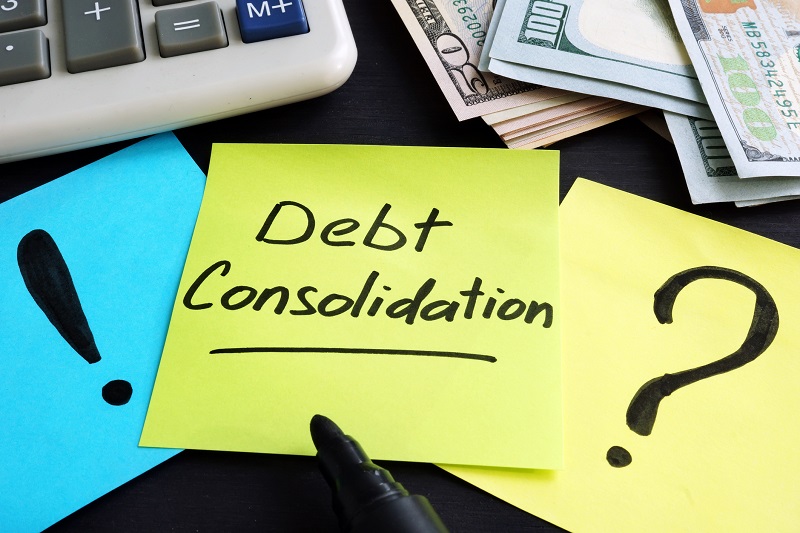Many families are currently encountering unprecedented times. Higher gas prices, higher food prices, higher interest rates, and higher rent are all current obstacles that can take a big bite out of your monthly budget. As the end of 2022 nears, you may be feeling as if the water is rising and the levee is about to break. Whether you’re drowning in debt or fighting to manage multiple loan payments, consolidating your debts into a single payment can help relieve a significant amount of stress and worry.
Debt consolidation can, in many cases, help you pay down your debt faster and simplify your monthly overall payment schedule.
Today, there are multiple consolidation options available. But simply deciding which one is right for you can feel overwhelming. Begin the process by planning and creating a budget that works for you. Next, reduce your overall spending habits. This is the time to weed out the wants from the needs. Finally, be prepared to commit to the long haul. Wiping out debt can take time. Be sure you’re ready to make the time commitment it will require to reach your financial goals. Let’s break down four of the most common debt consolidation options and how they can help you wipe out your negative debts, help you build up that credit score, and lead you to financial freedom.
#1: Balance transfer credit cards
Juggling multiple high-interest credit cards every month can get exhausting and expensive. Balance transfer credit cards may be a helpful solution for you. This approach allows you to combine multiple credit card balances onto one new reduced interest rate credit card payment allowing you to simplify your overall monthly payment schedule.
Caution: The limit on your new card will need to be high enough to accommodate all the balances you are rolling over, and an APR low enough to make it worthwhile. Also, applying for a new card will likely require a credit check which can temporarily reduce your overall credit score. Still, balance transfer options can be one of the quickest and easiest approaches to help you reduce and pay off debt.
#2: Home equity loans
Depending on your credit, you may qualify for a home equity loan. Qualified homeowners with a substantial amount of equity in their homes may be able to pull funds from their own homes to pay down debt. If your home is worth substantially more than your overall mortgage debt, this may be an option for you. Home equity loans typically involve lower interest rates than credit cards. They also tend to be larger than your average credit limit and the repayment periods are longer, which can translate into lower monthly payments. While lower monthly payments can allow for easier budget management, make note that a longer payback period can also produce more interest accrued over the life of the overall loan. If you feel you need more direction, be sure to work with your mortgage company and debt counselor to help explain this option to you more clearly and help you choose what works best for you.
#3: Personal loans
If the first two options do not fit your budget goals, you may want to consider a personal loan. While it is important to always exercise caution, taking a personal loan may be a valuable option for you. Personal loans can often involve higher interest rates than balance transfers and home equity loans but may be able to help you. Personal loans are unsecured, meaning you will not have to offer your assets as collateral, however, you still want to have a solid plan to pay the loan back. If taking a personal loan from a bank does not make you feel comfortable, another option is possibly taking a loan from a friend or family member. These personal loans involving family and friends can be helpful but can also involve complications if your payment plan happens to go south. So be sure you can fulfill your commitment.
#4: Debt consolidation programs
If you want to secure a debt consolidation option that doesn’t involve taking a loan or applying for an additional credit card, consider enrolling in a debt consolidation program. This approach involves working with a reputable debt consolidation company to work with you and develop a payoff plan feasible for you and satisfactory to your creditors. It typically involves making a single monthly payment to your debt consolidation company. The debt consolidation company would then use the funds to negotiate payoff arrangements with your creditors until all the debts in the program are paid off.
When choosing debt relief through debt consolidation, it’s important to research and understand your options. It can be helpful to engage in a reputable debt consolidation program to help you navigate the process. Countrywide Debt Relief offers more than 30 years of combined experience in helping consumers like you find financial freedom. Contact us if you’d like to learn more about your debt consolidation options and discover how this approach can help you manage your debts.


